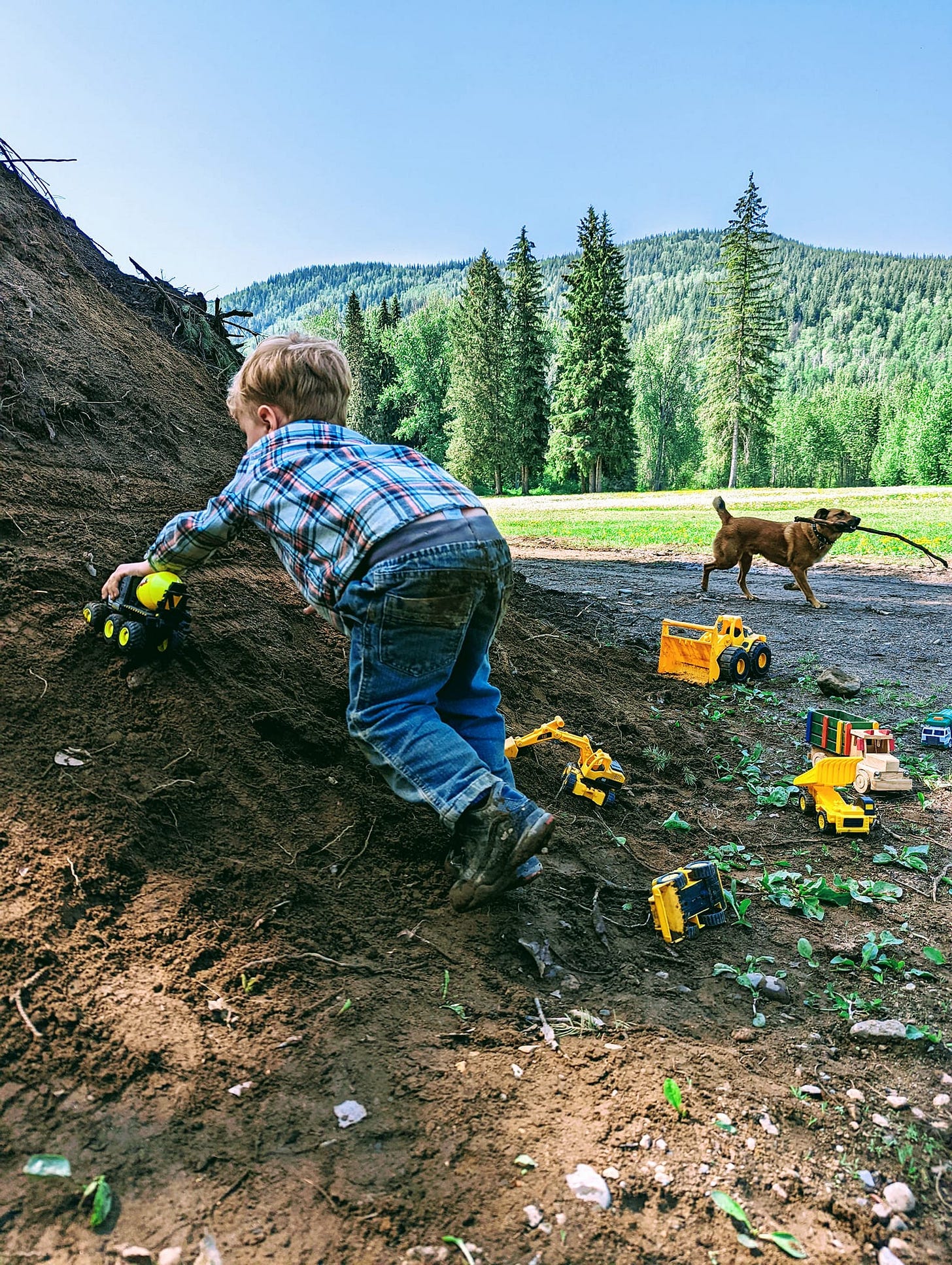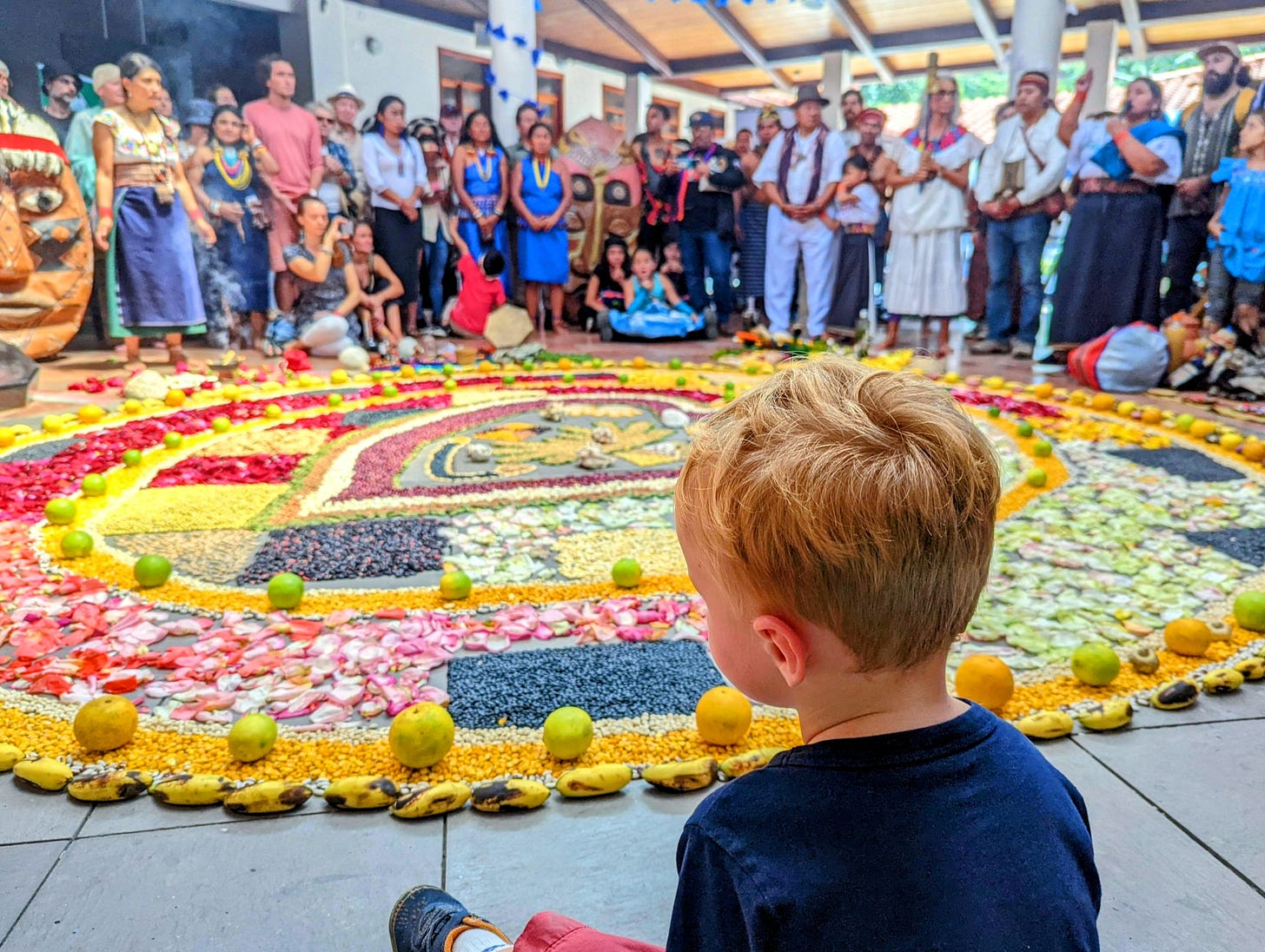On Learning and Teaching
Surprising things I learned from teaching my kid a second language
Part 1
I have been trying to teach my 3 year old to speak Russian, without much success.
He has been very resistant to it, as he doesn't really have other people to speak Russian with, and no other context in which he can use it.
Lately, he just yells "No Russian!!' any time I try.
So a couple of days ago I tried something new.
My son loves construction vehicles, and can play with them for hours. This kid might just become an engineer.
So I found some Russian videos for kids about construction vehicles, and I played them for him.
Today, he greeted me with "доброе утро" (good morning). He also corrected me on the proper Russian word for "dump truck" (самосвал). In short, it worked.
The lesson is this.
When trying to teach someone, start with the person you are trying to teach. Start with what is interesting to them, in the way they learn best, and when it is right for them.
Forcing learning is not the best way to go.
It's not about you as a teacher, or what you think is right. Your role is to spark the other person's natural curiosity, their natural desire to understand the world.
Curiosity and desire for knowledge is so obvious in little kids: they just love learning.
This can get lost in adulthood after years of getting beaten over the head by the public school system, and later by soul-sucking corporate culture.
When teaching adults, we can use the same curiosity-based approach.
I have seen adults learn new things incredibly fast when they are ready and curious about the thing they are learning.
On the subject of right timing: as the saying goes, "when the student is ready, the teacher will appear". I have found this to be true in my own journey, both as a student and as a teacher.
Another thing to note here is the importance of trust between the teacher and the person they are teaching. This has been mostly lost in the modern school system, and even more lost with impersonal online learning.
Our ancestors learned from people they knew, liked, and trusted. Our brains are still wired that way. Trust is the most important of the three.
So the formula for optimal learning seems to be something like this:
Natural curiosity + the right timing + the right mode of learning + trusted teacher.
Part 2
It has now been 2 weeks of daily Russian practice with my son.
Whatever we've been doing with the teaching and learning, it's working!
The 3 year old now wants to learn Russian every day.
His curiosity is leading his learning, and my attention and care are supporting it.
He wants to know new words.
He asks questions.
He wants me to sing Russian songs.
If it took a cartoon about excavators to get this moving, I'll take it!
Part 3
The act of learning makes us better learners.
After a couple of weeks of building our daily practice of learning Russian, the 3 year old now wants to learn Spanish too.
We just spent some time reviewing the Spanish names of all the fruit he learned earlier this year.
Los plátanos. Las manzanas. La sandía.
There are a couple of interesting things that happen when we learn.
The first thing is the embodied skill itself.
Once you figure out the basics of learning a skill, it becomes easier, more fun, and more rewarding to keep learning it.
It’s the so-called “learning curve“ - starting a new skill is harder than improving on an existing skill. Once you start, it gets easier.
The second thing is the learning habit.
When learning becomes enjoyable, you want to do it more and more. Next thing you know, you want to do it all the time and you end up doing it just for fun. This makes it easier to improve skills for the long term, and to work towards mastery.
The third thing is improved self-image.
When you learn something, it changes how you think about yourself and your learning process.
"I’m speaking Russian! Learning is fun!" - says the 3 year old
This makes him much more confident about learning more and more.
You start to think of yourself as someone who can learn things rather than someone who cannot. Removing mental blocks about learning makes it more effortless.
This is especially relevant to adults, who can get stuck in old habits and old ways of thinking about themselves.
Getting out of your self-created box is increadibly useful.
For example, thinking of yourself as someone who isn’t good at math can prevent you from learning any math, which only reinforces your pre-existing belief. You get stuck.
If you, by some magical circumstance of life, end up learning some math, suddenly your view of yourself changes - “Oh, maybe I’m not so bad at math“. So then you go and learn more and more math, and - voila - you are now good at math!
The fourth thing is the meta-skill of learning.
The process of learning trains the "learning muscle". You learn how to learn. The more different categories of skills you acquire, the easier it is to learn in general. It becomes a capacity that builds on itself.
Once you learn a second language, a third one is much easier, and a fourth one is easier still.
If you can learn language, you can learn music.
If you can learn a creative skill, you can learn a technical skill.
If you can improve your creative skills, you can improve your relationships skills.
If you know how to learn, you can become better in every area of your life.
The fifth thing is enhanced depth of worldview and richness of experience.
The more different categories of learning you engage in, and the more different capacities you develop, the deeper and richer your understanding of the world becomes.
There is a reason why all the most prominent philosophers, inventors, and thinkers in history were polymaths - they learned about everything under the sun, and often sought out really obscure and esoteric areas of learning, like occult studies, shamanic and spiritual practices, and the psychotechnologies that the majority of people aren’t even aware of.
Activating and training all the different capacities of the human organism greatly enhances our overall understanding of the world and ourselves.
Learning meditation has made me a better entrepreneur.
Spending time in nature has made me a better parent.
Practicing ecstatic dance has given me more clarity on my life purpose.
These things may not seem like they are related on the surface, but they absolutely are.
In our modern materialistic, deterministic ways of thinking, we often forget that everything is connected. We habitualy compartmentalize things and seek the fastest direct route to solving problems. When this works well enough and often enough, we begin to forget that it’s not the only way.
At a certain point on the learning journey, direct learning methods no longer work, or produce only marginal improvement. This is when indirect, nonlinear methods can produce massive shifts.
This type of holisting learning methodology is something I am very interested in reviving and developing.
And by the way, this applies not only to the personal domain - it also applies to the interpersonal, and the macro domains. These same patterns exist when it comes to collective and cultural learning.
The subject of learning and teaching has been of high interest to me, especially as my son is nearing preshool age.
I will likely be publishing more thoughts on it, as we continue our homeschooling journey.



